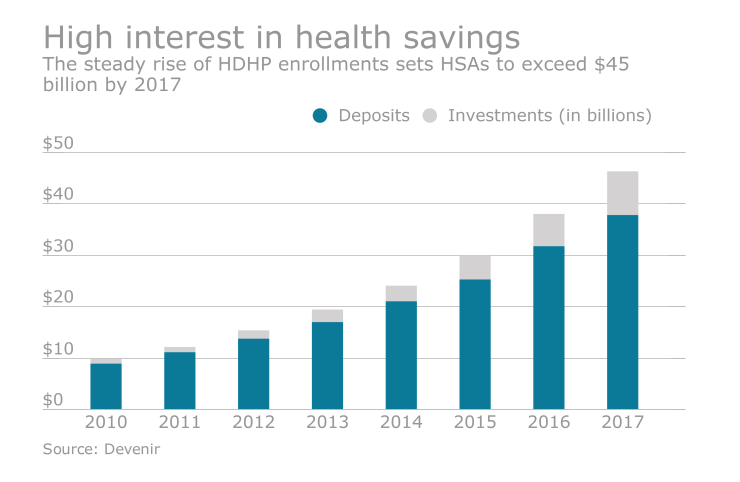While Congress continues to debate the fate of the Affordable Care Act, all proposals to date seem to acknowledge that health savings accounts will continue to play an important role in consumer healthcare.
With the ongoing

Many employers elect to make contributions to their employees’ HSA accounts to soften that impact. But for some employers, particularly those with high turnover, that approach simply transfers the financial impact to the employer: Once an employer makes an HSA contribution, those funds are owned by the employee and generally can’t be recovered by the employer even if the employee terminates employment. So in short, those are immediate “sunk” costs.
Also see: “
Vendors in the marketplace have responded by offering a number of creative products, some of which purport to address these concerns. One product in particular holds funds in a pooled account for a fixed period of time (pending deposit to the individual HSA accounts), and reimburses qualifying expenses from that pooled account somewhat like a health flexible spending account.
Adverse impact
While creative product designs are understandably attractive to employers, it’s important to consider that some of them could adversely impact employee HSA eligibility, even though they may purport to be HSA-compatible. Moreover, employers have an obligation to confirm employees are not covered by incompatible coverage that they sponsor.
When there’s a lack of direct guidance (and often there is), employers should consult their advisers and recall baseline IRS guidance. Certain types of coverage (dental, vision, preventive care) are expressly permitted by the rules, but otherwise, any plan that provides coverage before the required minimum deductible has been satisfied is potentially disqualifying.
The pitfalls of “accidental” disqualifying coverage can have significant tax implications on employees. If an employee has disqualifying coverage at the time the account is established, then the account isn’t treated as an HSA and contributions are not tax favored. Conversely, if an individual establishes a valid HSA, but later obtains disqualifying coverage, any HSA contributions made thereafter are also not eligible for tax favored treatment, and are subject to a cumulative (year over year) excise tax.
Finding out about disqualifying coverage is an unpleasant surprise, and creates administrative headaches for both employers and employees (potentially amended W2 records, tax filings for prior years, etc.).
What’s the solution? If employers are being pitched a product that they can’t clearly define or label, or that doesn’t fit into any of the traditional boxes, it’s important to engage advisers for a thorough analysis. Almost always, the cautious approach pays off, in the form of happy employees, simpler administration and secure HSA accounts.





